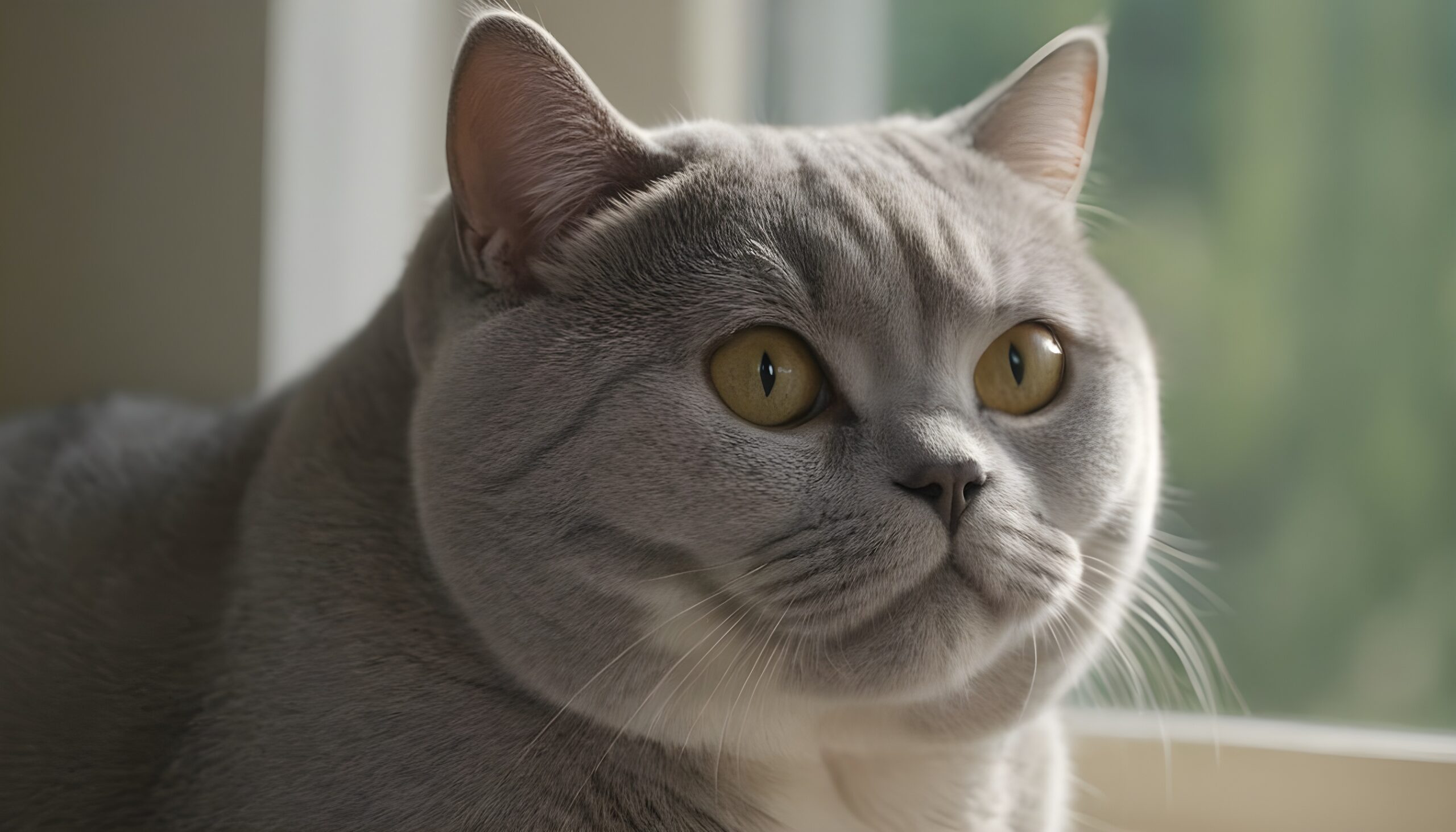Are you considering getting a British Shorthair cat but worried about allergies? You’re not alone. Many people wonder if these adorable felines are hypoallergenic. In this article, we will explore the hypoallergenic nature of British Shorthair cats and provide insights into whether or not they are suitable for individuals with allergies.
Understanding Hypoallergenic Cats and Allergies
When it comes to cat allergies, many allergy sufferers often wonder if there are hypoallergenic cat breeds available. In this section, we will delve into the fascinating world of hypoallergenic cats and explore the connection between cats and allergies.
Allergies to cats are quite common, affecting millions of people worldwide. The main culprit behind cat allergies is a protein called Fel d 1, which is produced by cats and is found in their saliva, urine, and dander. When individuals with allergies come into contact with this protein, their immune system recognizes it as a threat and launches an immune response, leading to allergic reactions.
Despite the term “hypoallergenic,” it is important to note that no cat breed is completely allergen-free. However, some cat breeds are known to produce fewer allergens or have a lower likelihood of triggering allergic reactions. These breeds are often referred to as hypoallergenic cats.
It is crucial to understand that hypoallergenic cats do not eliminate the allergen entirely but may cause less severe allergies or allergic reactions compared to other breeds. Factors such as the amount of allergens produced, the cat’s grooming habits, and the type of fur they have can influence their hypoallergenic potential.
To comprehend the hypoallergenic qualities of cats, let’s take a closer look at the production of Fel d 1 protein. This protein is secreted by a cat’s sebaceous glands, which are located in their skin. During grooming, cats spread this protein onto their fur, leading to allergens being dispersed into the surrounding environment. As a result, individuals may experience allergic reactions when they come into contact with the cat’s fur, dander, or saliva.
While it is impossible to completely eliminate Fel d 1 protein, hypoallergenic cat breeds are known to produce fewer allergens or have different genetic variations that result in lower levels of this protein. This reduced production can minimize the chances of allergic reactions in sensitive individuals.

Exploring the Hypoallergenic Potential of British Shorthair Cats
When it comes to hypoallergenic cats, British Shorthair cats are often mentioned. In this section, we will delve into the hypoallergenic qualities of British Shorthairs and examine whether they are suitable for individuals who suffer from allergies. Let’s take a closer look at various factors that contribute to their hypoallergenic potential.
Fur Type and Grooming Habits
One of the key factors in determining a cat’s hypoallergenic potential is their fur. British Shorthair cats have a dense, plush coat that feels soft to the touch. While no cat is completely hypoallergenic, British Shorthairs are believed to produce fewer allergens compared to cats with longer or more layered fur. Their shorter fur may reduce the amount of allergens, such as dander, that are released into the environment.
“British Shorthair cats have a dense, plush coat.” – Dr. Sarah Johnson, Veterinarian
In addition to their fur type, British Shorthairs are known for their grooming habits. They have a tendency to groom themselves regularly, which can help minimize the spread of allergens. By keeping their fur clean and free from irritants, British Shorthairs may contribute to a more allergen-controlled environment.
Dander Production and Allergenic Properties
Dander, the microscopic skin flakes that cats shed, is a common trigger for allergies in individuals. British Shorthair cats, like all felines, produce dander. However, due to their shorter fur and potential grooming habits, British Shorthairs may produce less dander compared to other cat breeds with longer fur.
Another factor to consider is the allergenic properties of British Shorthair cats’ saliva and shed fur. While there is limited scientific research specifically on British Shorthair cats, it is generally believed that their saliva and shed fur contain lower levels of the allergen protein, Fel d 1, compared to cats with longer fur or different breeds.
While British Shorthair cats may have hypoallergenic qualities, it is important to note that the level of allergenicity can vary from individual to individual. Allergy sufferers should spend time with a British Shorthair cat before fully committing to see how their allergies are affected. Regular grooming and maintaining a clean living environment can also help minimize allergen exposure.
Conclusion
After analyzing the hypoallergenic potential of British Shorthair cats, we can confirm that they are not hypoallergenic. Despite their popularity and charming qualities, individuals with allergies should exercise caution before considering a British Shorthair kitten as a pet.
The main culprit behind allergies caused by cats is the Fel d 1 protein, which is present in the skin cells, saliva, and urine of all cats, including British Shorthairs. These proteins can trigger allergic reactions in susceptible individuals, leading to symptoms such as sneezing, itching, and watery eyes.
Although British Shorthairs have relatively short and dense coats, they still produce dander, which is a common allergen. Additionally, they groom themselves regularly, spreading the Fel d 1 protein onto their fur through saliva, which can further contribute to allergic reactions. The shed fur of British Shorthairs can also contain allergens, exacerbating the immune response in sensitive individuals.
If you suffer from allergies but still wish to have a feline companion, it may be best to consider alternative cat breeds. Some long-haired breeds, such as the Siberian cat or the Balinese, are known to produce fewer allergens and may be more suitable for individuals with allergies. It is always recommended to spend time with any cat breed before making a decision, as individual reactions to allergens may vary.
FAQs
Q: Are British Shorthair Cats Hypoallergenic?
A: Unfortunately, British Shorthair Cats are not hypoallergenic. While they may shed less than other breeds, they still produce allergens in their saliva and dander that can cause allergic reactions in sensitive individuals.
Q: What are some ways to reduce allergic reactions to British Shorthair Cats?
A: To reduce allergic reactions, consider using HEPA filters in your home, grooming your cat frequently, bathing them regularly, and keeping your living spaces clean and free of fur and dander.
Q: Can allergy medication help with cat allergies?
A: Allergy medication can help alleviate symptoms of cat allergies such as sneezing, coughing, and nasal congestion, but it will not make you immune to the allergens produced by cats.
Q: How often should I groom my British Shorthair Cat?
A: Grooming your British Shorthair Cat at least once a week can help reduce shedding and the amount of allergens they spread around your home.
Q: What are some cat breeds that are more hypoallergenic than British Shorthairs?
A: Some cat breeds known for being more hypoallergenic include Sphynx Cats, Cornish Rex Cats, and Snowshoe Cats, as they produce fewer allergens compared to other breeds.
Q: Can I develop allergies to cats even if I’ve never had them before?
A: Yes, it is possible to develop allergies to cats at any point in your life, even if you have never shown signs of allergies before. It is essential to be aware of the symptoms and take necessary precautions.
Q: Do British Shorthair Cats make a good choice for allergy sufferers?
A: British Shorthair Cats may not be the best choice for allergy sufferers, as their fur and dander can trigger allergic reactions in sensitive individuals. Consider other hypoallergenic breeds if you have severe allergies.
